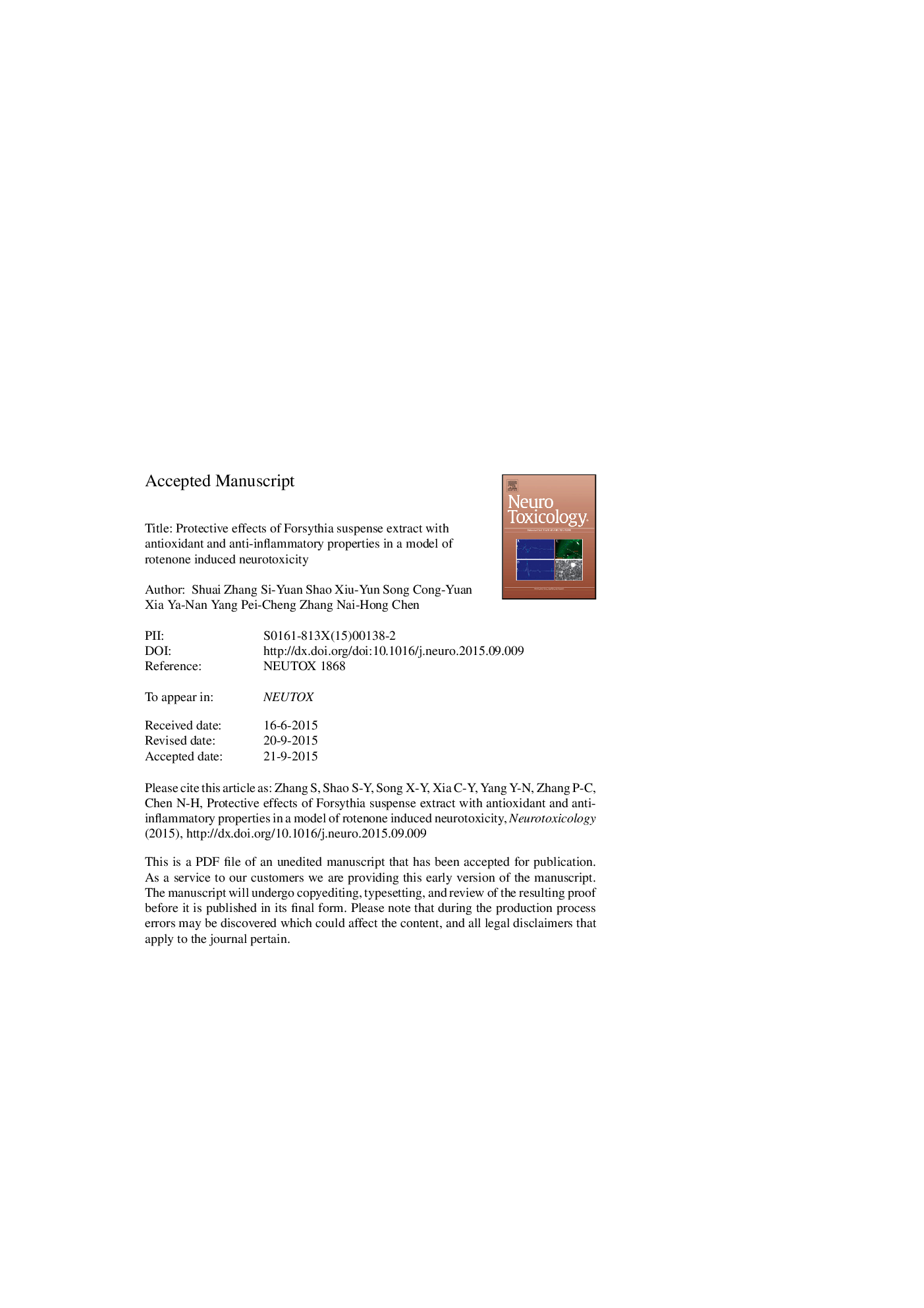| Article ID | Journal | Published Year | Pages | File Type |
|---|---|---|---|---|
| 5854661 | NeuroToxicology | 2016 | 43 Pages |
Abstract
The present study investigated the neuroprotective effects of Forsythia suspense extract in a rotenone-induced neurotoxic model. FS8, one of the herbal extracts, markedly protected PC12 cells against rotenone toxicity and was selected for the in vivo study. Gavage administration of FS8 (50 and 200 mg/kg, but not 10 mg/kg) for 25 days significantly improved the behavior function, decreased the loss of dopaminergic neurons in substantia nigra (SN), and maintained the level of dopamine in striatum after unilateral infusion of rotenone in SN. Wherein, the protective effects of FS8 at the dose of 200 mg/kg were better than selegiline. Further study indicated the excellent antioxidant activity of FS8 on the 5th and 21st days after intranigral injection of rotenone. Moreover, FS8 could inhibit microglia activity and accumulation in SN, and obviously decreased the expression of pro-inflammatory molecules (IL-6, TNF-α, iNOS and COX-2), which indicated the anti-inflammatory effects of FS8. In the PI3K/Akt/NF-κB and MAPK pathways, FS8 significantly down-regulated the protein expression of p-PI3K, p-Akt, p-IκB, p-P65, cleaved Caspase 8, p-p38 and p-JNK but not p-mTOR, cleaved Caspase 3 and p-ERK. Therefore, FS8 protected dopamine neurons against rotenone toxicity via antioxidant and anti-inflammatory effects, which suggested the promising application of FS8 in the prevention and treatment of Parkinson disease.
Related Topics
Life Sciences
Environmental Science
Health, Toxicology and Mutagenesis
Authors
Shuai Zhang, Si-Yuan Shao, Xiu-Yun Song, Cong-Yuan Xia, Ya-Nan Yang, Pei-Cheng Zhang, Nai-Hong Chen,
